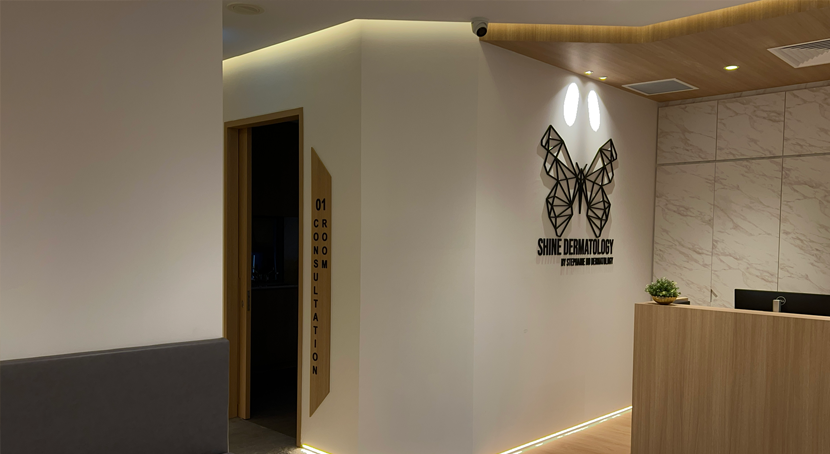What Is Acne?
Acne is a medical skin condition that occurs when hair follicles become clogged with oil (sebum) and dead skin cells. This blockage leads to various types of lesions, including blackheads, whiteheads, papules, pustules, nodules, and cysts. While acne most commonly appears on the face, it can also affect the back, chest, and shoulders.
Although not medically dangerous, untreated or severe acne can lead to scarring and emotional distress. Early diagnosis and targeted treatment can help reduce flare-ups and prevent long-term complications.
Signs and Symptoms
Acne can present in multiple forms:
-
Whiteheads: Small, closed pores clogged with sebum and dead skin.
-
Blackheads: Open clogged pores where the sebum oxidises and turns dark.
-
Papules: Small, red, inflamed bumps that may feel tender.
-
Pustules: Pimples with visible white or yellow pus at the tip.
-
Nodules: Large, firm, painful lumps beneath the skin.
-
Cysts: Deep, inflamed pus-filled lesions that may lead to scarring.
Persistent or severe acne warrants professional attention to prevent scarring and manage inflammation effectively.
Common Causes and Risk Factors
Several internal and external factors contribute to acne development:
-
Hormonal changes during puberty, menstruation, pregnancy, or menopause
-
Genetic predisposition, especially with a family history of acne
-
Excess sebum production from overactive oil glands
-
Bacterial overgrowth, particularly Cutibacterium acnes, which triggers inflammation
-
Lifestyle habits, such as stress, poor diet, or use of comedogenic products
-
Medication-induced acne, especially from corticosteroids, lithium, or certain hormonal therapies
Our dermatologists conduct a comprehensive consultation to identify your triggers and customise an appropriate treatment plan.
Acne Treatment Options at Shine Dermatology
Treatment is tailored based on acne severity, lesion type, and skin sensitivity. Our evidence-based treatment options include:
1. Topical Medications
Medically prescribed creams or gels with ingredients like retinoids, benzoyl peroxide, or topical antibiotics help reduce inflammation and clear blocked pores.
2. Oral Therapies
Options such as antibiotics, hormonal therapy (e.g., oral contraceptives), or isotretinoin may be recommended for moderate to severe acne.
3. Chemical Peels
Mild acid peels exfoliate the skin, help unclog pores, and improve skin texture.
4. Laser and Light-Based Treatments
These reduce bacterial load and inflammation while promoting skin rejuvenation.
5. Comedone Extraction
Performed in a sterile clinical setting to safely remove blackheads or whiteheads.
6. Skincare Optimisation
We provide tailored skincare advice to support long-term skin clarity.
Each treatment plan is closely monitored and adjusted to suit your skin type, response, and lifestyle.
Frequently Asked Questions (FAQs)
1. Can acne be permanently cured?
Acne can be controlled effectively with consistent treatment, but some individuals may require long-term maintenance.
2. Is acne caused by poor hygiene?
No. Overwashing or harsh scrubbing may worsen acne. Gentle, regular cleansing is more effective.
3. Does diet play a role in acne?
Some people may experience breakouts triggered by dairy or high-glycaemic foods. A balanced diet supports healthier skin.
4. How soon will treatments show results?
Improvements typically appear within 4 to 8 weeks. Continued use is necessary to maintain progress.
5. Does stress affect acne?
Yes. Stress can exacerbate hormonal imbalances, potentially worsening acne.
6. Should I pop pimples?
No. This increases the risk of infection and scarring. Leave extractions to a dermatologist.
7. Can adults get acne?
Yes. Adult acne is common and often linked to stress, hormonal shifts, or skincare products.
8. Are there side effects to acne treatments?
Some treatments may cause dryness, irritation, or sensitivity. Your dermatologist will guide you on how to manage side effects.
9. Is makeup safe for acne-prone skin?
Use non-comedogenic (non-pore-clogging) products and always remove makeup before sleep.
10. How do I prevent acne scars?
Early treatment and avoiding picking at lesions are key. Professional treatments such as laser therapy can reduce existing scars.
Take the First Step Toward Clearer Skin
Acne is a manageable condition with the right care. At Shine Dermatology Singapore, our team is committed to guiding you through every stage of your skin journey with safe, effective, and personalised treatments.
Book a consultation with us today to begin your path to clear, confident skin.



